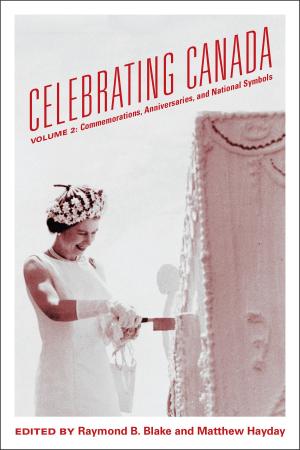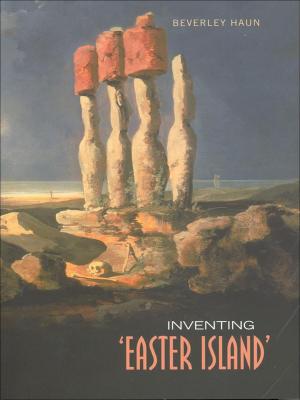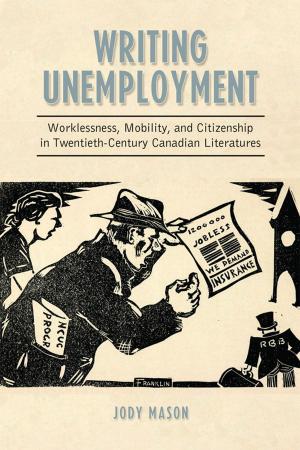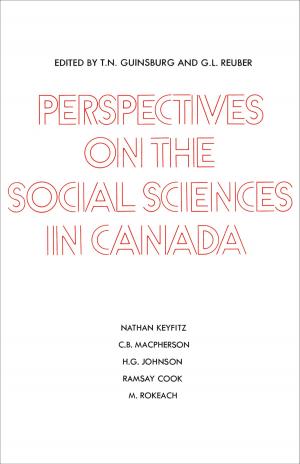Mirror of Minds
Psychological Beliefs in English Poetry
Fiction & Literature, Literary Theory & Criticism, Poetry History & Criticism, Nonfiction, Religion & Spirituality, Philosophy, History, Criticism, & Surveys, British| Author: | Geoffrey Bullough | ISBN: | 9781442651074 |
| Publisher: | University of Toronto Press, Scholarly Publishing Division | Publication: | December 15, 1962 |
| Imprint: | Language: | English |
| Author: | Geoffrey Bullough |
| ISBN: | 9781442651074 |
| Publisher: | University of Toronto Press, Scholarly Publishing Division |
| Publication: | December 15, 1962 |
| Imprint: | |
| Language: | English |
The aim of the author, who has long been interested in the history of ideas, has been to give some illustrations of the ways in which at various periods English poetry has reflected current views of the human mind, with special reference to such topics as its place in the cosmos, its relations with the body, the connections between sense, passions, and reason, the problem of soul and its possible survival after death. The subject matter is important, for many of the more self-conscious writers have been profoundly affected by their assumptions about the senses and passions, the reason and the imagination.
The author traces four main historical phases in each of which different aspects and potentialities of the mind have been stressed. Chapter I discusses the microcosmic conception of man inherited from the Middle Ages and traces its influence in some allegorical and didactic verse, lyric and epic. Chapter II considers the development of Shakespeare’s attitude to the mind and human character. Chapter III turns to some effects (between Dryden and Wordsworth) of the seventeenth-century revolution in philosophy and science, including the search for clarity and order, the Augustan interest in reason and the passions, and the rise of the association of psychology. Chapter IV shows how the Romantic poets made use of associations and intuitions, and discusses the Victorian poets’ hopes and fears about immortality in relation to the advance of science. The last chapter traces the influence of the philosophy of the “moment” from the aesthetes to T.S. Eliot, and distinguishes the effects of some twentieth-century psychologies in modern poetry.
Poets, of course, have rarely been systematic philosophers or psychologists; they have usually picked out and applied imaginatively only a few notions from contemporary thought. Consequently this study does not attempt to set the history of English poetry squarely against the history of philosophy. Rather, characteristic topics and writers have been selected and the discussion of them will be seen to throw light on some major imaginative preoccupations of each age. The student of English poetry and the history of ideas will find valuable comments on the major writers from Chaucer and Spenser down through Shakespeare and Milton, Dryden, Wordsworth, Shelley, Tennyson, Browning, Hardy and on a variety of modern poets such as Bridges, Eliot, Sitwell, Auden, and Graces.
Alexander Lecture Series.
The aim of the author, who has long been interested in the history of ideas, has been to give some illustrations of the ways in which at various periods English poetry has reflected current views of the human mind, with special reference to such topics as its place in the cosmos, its relations with the body, the connections between sense, passions, and reason, the problem of soul and its possible survival after death. The subject matter is important, for many of the more self-conscious writers have been profoundly affected by their assumptions about the senses and passions, the reason and the imagination.
The author traces four main historical phases in each of which different aspects and potentialities of the mind have been stressed. Chapter I discusses the microcosmic conception of man inherited from the Middle Ages and traces its influence in some allegorical and didactic verse, lyric and epic. Chapter II considers the development of Shakespeare’s attitude to the mind and human character. Chapter III turns to some effects (between Dryden and Wordsworth) of the seventeenth-century revolution in philosophy and science, including the search for clarity and order, the Augustan interest in reason and the passions, and the rise of the association of psychology. Chapter IV shows how the Romantic poets made use of associations and intuitions, and discusses the Victorian poets’ hopes and fears about immortality in relation to the advance of science. The last chapter traces the influence of the philosophy of the “moment” from the aesthetes to T.S. Eliot, and distinguishes the effects of some twentieth-century psychologies in modern poetry.
Poets, of course, have rarely been systematic philosophers or psychologists; they have usually picked out and applied imaginatively only a few notions from contemporary thought. Consequently this study does not attempt to set the history of English poetry squarely against the history of philosophy. Rather, characteristic topics and writers have been selected and the discussion of them will be seen to throw light on some major imaginative preoccupations of each age. The student of English poetry and the history of ideas will find valuable comments on the major writers from Chaucer and Spenser down through Shakespeare and Milton, Dryden, Wordsworth, Shelley, Tennyson, Browning, Hardy and on a variety of modern poets such as Bridges, Eliot, Sitwell, Auden, and Graces.
Alexander Lecture Series.















